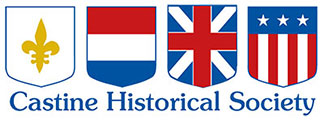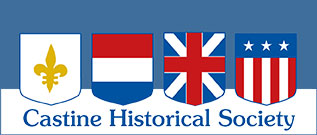History of Lafayette
An Inspired Boy of Privilege Comes to America
On Sept.6th, 1757, Gilbert de Motier, Marquis de Lafayette was born in the Auvergne, France to a noble family famous for centuries as warriors for France, along the way gathering enormous wealth and the favor of royalty. At age two the death of his father by a British cannonball thrust this only child into the family mold of military and chivalric honor- and responsibility. An orphan with his mother’s death in 1770, his family intensified his education to include the enlightenment philosophers- Voltaire, Locke, Montesquieu- adding to an apparent natural sense of justice- certain to clash with the surrounding feudal world.
This was the enlightened attitude of the 19-year old who had followed the emerging rebellion in the British colonies, and declared that he would go to America to join those who had taken up the banner of liberty. By then his pronounced deviations from the traditions of nobility had earned him the suspicions of royalty, and when the King learned that Lafayette was secretly on his way south to find transport to America, he issued a warrant for his arrest. But Lafayette escaped to Spain, and was soon aboard the Victoire- his own ship, purchased for the purpose- and sailing to America.
With Washington at War
Landfall in the Carolinas brought on much misadventure before Lafayette finally arrived in Philadelphia on June 27th, 1777 to present himself to Congress. He barely avoided the fate of the many French officers who came demanding high rank and pay. Instead, President John Hancock knew the youngster’s noble position in France, his willingness to serve without pay- and even the fact that Lafayette was a Freemason, like Washington and many in Congress. Declared a volunteer Major General by Congress, he soon met General Washington- and at once life changed for them both. The childless Washington appeared to the fatherless Lafayette as the “Arthurian Hero,” materialized out of his imagination. The bond would soon become “the adopted son-” that only death would sunder.
Washington promptly put the eager Lafayette to task, assigning him field command just weeks before the British army under Lord Howe sailed up the Chesapeake and marched north, aiming for Philadelphia in September, 1777. Washington met him at the Brandywine River in a daylong battle lost in part because of one of Howe’s known flanking movements- and during which Lafayette performed remarkably well, holding his line until wounded with a bullet in the thigh. He left the field lauded for his courage, barely two months after arriving in Philadelphia.
Lafayette recovered to be at Valley Forge that winter, and again performed well in the spring at Barren Hill and Monmouth. But late in 1778 Lafayette realized that Washington’s army could not rise out of its destitute material state to become a consistent fighting force without considerable outside help- and that help could only come from France.
Lafayette Returns to France a Hero
Dodging winter storms and a mutiny, Lafayette’s battered frigate Alliance arrived at Brest on February 6th, 1779. Riding overnight, he arrived spectacularly at a late night Versailles Ball in his American General’s uniform. The returned boy: a seasoned man and hero. All France had followed his trials, swooning at his wound and stirring his exploits in every cafe’ demitasse. Even the King relented after a scolding, and restored royal favor. But he had work to do. After months of being part of dubious anti-British plans, he finally made his momentous proposal: that nothing less than a large force of ships and troops, plus materiel and money all provided directly to the Americans was the only route likely to affect the war.
Until the end of 1779, together with Benjamin Franklin he shuttled between Paris and Versailles to argue the proposal. Not an easy sell: its dimensions were such as to threaten the stability of the French Treasury, but it was finally agreed upon by the ministers Maurepas and Vergennes, then the King, in January, 1780. Immediately Lafayette made plans to return to America, carrying the secret news of the military force and supplies to come.

